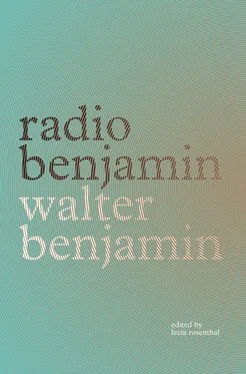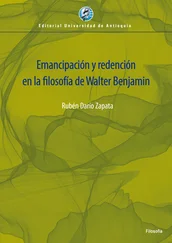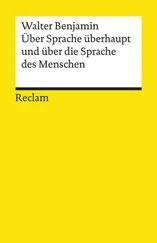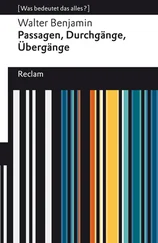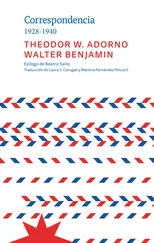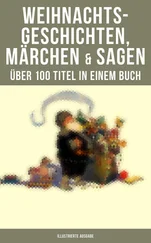THE ANNOUNCER: It seems to me it just doesn’t want to spit out its name, this voice. It’s afraid to expose itself, and with good reason. I’d like to propose the name Jean Paul. 46This darling of German readers around 1800, the most overblown, lachrymose, undisciplined, and rudderless writer who has ever written a novel.
THE VOICE OF ROMANTICISM: That a poet should write pedagogy need not bespeak aimlessness.
THE ANNOUNCER: You are speaking of Levana. 47Listen to how Jean Paul describes a young boy. You will have to admit, he doesn’t have the stuff of an educator. He’s an incorrigible dreamer, nothing more.
The following text is read by the Announcer in an especially flat and uncomprehending manner up until the sound of the gong. After the gong the Second Man of Letters takes up the reading, expressively, though in afine monotone.
He burst into a mingling flood of tears at once of joy and sorrow, and the past and the future simultaneously stirred his heart. The sun with ever-increasing swiftness dropped down the heavens, and the more swiftly did he climb the mountain, the quicker to follow its flight with his eye. And there he looked down into the village of Maienthal, that glimmered among moist shadows … Then the earth, tuned by the Creator, rang with a thousand strings… 48
The sound of a gong.
SECOND MAN OF LETTERS: “… the same harmony stirred the stream, divided into gold and gloom, the humming flower-cup, the peopled air, and the waving bush; the reddened east and reddened west stood stretched out like the two rose-taffeta wings of a harpsichord, and a tremulous sea gushed from the open heavens and the open earth …” 49
HEINZMANN: This can’t be the place, Mr. Unger. They are reading aloud in there.
UNGER: I know my way around Leipzig, my dear Heinzmann. That’s the basement of Breitkopf’s. You can see the signboard with the titles of new arrivals.
HEINZMANN: You will not run across Breitkopf so early in the morning.
UNGER: Could be that he is himself already out after commissions. Then we’ll wait for him. Given the voices within, we are not the first.
SECOND MAN OF LETTERS ( reading ): “At his feet, and on this mountain …” 50
UNGER: If we’re disturbing you, I beg your pardon.
SECOND MAN OF LETTERS: Mr. Unger, it is no surprise to see you in Leipzig, but it is a great pleasure.
UNGER: May I introduce a business friend, Mr. Heinzmann from Bern. Distinguished Scholar.
We hear the murmured exchange of greetings, compliments, etc.
UNGER: Are we disturbing you, my most esteemed sir? What were you reading?
SECOND MAN OF LETTERS: What I prefer to read in the morning, an evensong.
HEINZMANN: That doesn’t look at all like a prayer book.
SECOND MAN OF LETTERS: It is also more than a prayer book.
HEINZMANN: More?
SECOND MAN OF LETTERS: Hesperus, by Jean Paul. But hear for yourself:
At his feet, and on this mountain, lay, stretched like a crowned giant, like a transplanted spring-island, an English park. This mountain toward the south and the one toward the north met and formed a cradle in which the peaceful village rested, and over which the morning and the evening sun spun and spread out their golden veil. In five gleaming ponds trembled five duskier evening heavens, and every wave that leaped up painted itself to a ruby in the hovering fire of the sun. Two brooks waded, in shifting distances, darkened by roses and willows, over the long meadow-land, and a watering fire-wheel, like a pulsating heart, forced the sunset-reddened water through all the green flower-vases. Everywhere nodded flowers, those butterflies of the vegetable world, on every moss-grown brook-stone, from every tender stalk, round every window, a flower rocked on its fragrance, and scarlet lupines traced their blue and red veins over a garden without a hedge. A transparent wood of gold-green birches climbed, in the high grass over there, the sides of the northern mountain, on whose summit five tall fir-trees, as ruins of a prostrated forest, held their eyrie. 51
A brief pause, following which the Second Man of Letters continues:
I am pleased to see that you have made yourselves comfortable.
UNGER: Yes, you have found a good corner. I think we can wait for Breitkopf here in peace. If it’s alright with you, Mr. Heinzmann.
HEINZMANN: Of course. What does not sit well with me is Jean Paul.
IFFLAND: You won’t want to say anything against Jean Paul … Do you know the epigraph of Hesperus ? “The Earth is the cul-de-sac in the great city of God, — the camera obscura of inverted and contracted images from a fairer world, — the coast of God’s creation, — a vaporous halo around a better sun, — the numerator to a still invisible denominator, in fact, it is almost nothing at all.” 52
HEINZMANN: You know that by heart?
IFFLAND: I’m not ashamed of it.
HEINZMANN: “In fact, it is almost nothing at all.” You see, it is these turns of phrase that spoil Jean Paul for me. We already have enough whimsical minds with us in Switzerland. I don’t need to tell you about Lavater.
SECOND MAN OF LETTERS: To utter the name of a poet and a charlatan in the same breath.
HEINZMANN: I already told you, I speak as a Swiss. We are a sober people, but we are also an old democracy. We feel how the countless small courts have duped you Germans and deprived you of your independence. Precisely in the case of Jean Paul we feel that. A stunted subaltern intellect has sucked the marrow from his characters’ bones. Even in contrast to the lowliest serf, they appear dishonorable.
IFFLAND: No, there I cannot agree with you. For I know better than anyone how little cause the author has to think differently than you concerning the bourgeoisie and the nobility. I have known his misery and I am proud that it was my friend Moritz in Berlin — my friend and classmate, I should have said — who found the publisher for Jean Paul’s first book.
SECOND MAN OF LETTERS: Classmate, you say?
IFFLAND: Yes, and you will never have guessed that Moritz’s consuming desire when we were together in school was to become a great actor. Indeed, there was a time when we were rivals.
We hear a commotion. Voices, etc.
IFFLAND: But what is all this uproar?
SECOND MAN OF LETTERS: Young people from the Museum Club, who, as I heard, are holding a rehearsal.
HEINZMANN: I am sorry to be tiresome, but if we don’t use the book fair, Mr. Businessman, to speak out concerning our profession, then I don’t know when we ever will. So let me tell you that we have an excess of novels, of belles lettres, of political hot air. What are we in need of? Natural science and history, history and geography, travel diaries. But the works of natural science should not be metaphysical. Nor should they be pedantic. Enough books on minerals and insects. What we need are popular writings. They should awaken thoughts of the Creator, the order and omnipotence of the natural world, they should show us the great, the beautiful, and the sublime, and the more closely they unite that with everyday life, with practical economics and work, with mathematics and mechanics, the better.
UNGER: Your ideal, if I understand correctly, is Defoe, who besides his Robinson and 200 other books created the first fire and hail insurance companies, and the first savings bank.
HEINZMANN: And we are proud to have such a Robinson-writer in Switzerland. That is Pastor Wyss with his Swiss Family Robinson . 53But I didn’t mean to speak of that. For I openly concede to you, my gentlemen, I did have an ulterior motive. I have my ideal of an author in my coat pocket and I would like very much to share it with you. It is the book of a poor and uneducated man. But just as the travel account of an itinerant journeyman is ten times more valuable than a scholarly treatise, so too something truly special emerges today when a poor, uneducated man sits down to narrate his life.
Читать дальше
